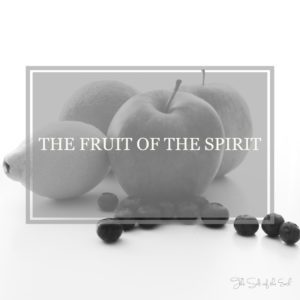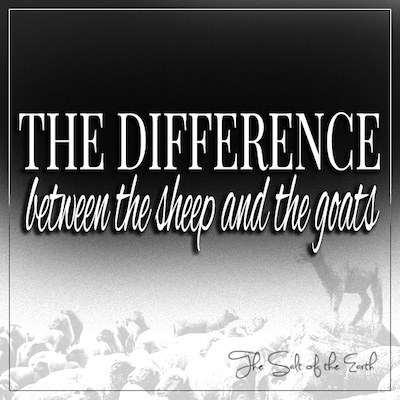The Kingdom of Heaven is a spiritual Kingdom. Because God’s people were not spiritual but carnal, Jesus used illustrations and examples from the natural realm and everyday life to reveal the Kingdom of God, provide spiritual insights, and teach spiritual and moral principles. You might say, that Jesus translated the spiritual into the natural. One of these parables is the parable of the sower in Matthew 13. What does the parable of the sower mean? What does the soil represent in the parable of the sower and what does the seed represent in the parable of the sower?
The parable of the sower explained
And He spake many things unto them in parables, sakot, Redzi, a sower went forth to sow; And when he sowed, some seeds fell by the way side, and the fowls came and devoured them up: Some fell upon stony places, where they had not much earth: and forthwith they sprung up, because they had no deepness of earth: And when the sun was up, they were scorched; and because they had no root, they withered away. And some fell among thorns; and the thorns sprung up, and choked them: But other fell into good ground, and brought forth fruit, some an hundredfold, some sixtyfold, some thirtyfold. Who hath ears to hear, let him hear (Metjū 13:3-9, Marka 4:3-8, Luke 8:5-8)
In the parable of the sower, Jesus talked about the Kingdom of Heaven and the four kinds of believers (four kinds of Christians). Jesus compared the sower and the seeds with the Kingdom of Heaven. The Kingdom is sown as seeds. The seeds in the parable of the sower represent the Word of God that is sown in the lives of believers. Depending upon the heart and life of the believer, the seed shall produce fruit or not. When the believer produces fruit, the Kingdom of God becomes visible in the life of the believer.
The sower sows the same seed. But whether the seed (vārds) produces fruit depends upon the soil (the ‘spiritual soil’ of the believer; the life of the believer).
Is the believer dzimis no jauna and has the believer receiveda new heart? What kind of life does the believer live? Has the believer laid down his or her flesh in Jesus Christ and does (s)he seek the things, which are above? Or does the believer still love his or her own life and seek those things, which are on this earth?
The seed that fell by the way side
When any one hears the word of the kingdom, and understands it not, then comes the wicked one, and catches away that which was sown in his heart. This is he which received seed by the way side (Metjū 13:19)
In the parable of the sower, the seeds that fell by the way side represent the believer, who hears the words of God but doesn’t understand the words of God. This can be caused by several reasons.
Maybe the believer is not dzimis no jauna in the spirit and therefore doesn’t understand the spiritual things of the Kingdom of God. Since the natural old man is not able to comprehend and understand the spiritual things of the Kingdom of God.
But the natural man receives not the things of the Spirit of God: for they are foolishness unto him: neither can he know them, because they are spiritually discerned (1 korintieši 2:14)
Another reason may be, that the words of God are not explained clearly or in a wrong manner which may cause confusion.
But it can also be that the attention of the believer is drawn away, while listening to the words of God or while reading the Bible.
Anyway, there are many reasons, why a believer, who hears the words of God, don’t understand the words of God.
If the believer hears the words of the Kingdom but doesn’t understand them, then the devil; the wicked one, comes and catches away the seeds; the words that are sown in his heart. The seed shall not grow and shall not produce fruit.
The seed that fell on stony places
But he that received the seed into stony places, the same is he that hears the word, and anon with joy receives it; Yet hath he not root in himself, but dureth for a while: for when tribulation or persecution arises because of the word, by and by he is offended (Metjū 13:20-21)
In the parable of the sower, the seed that was received in stony places represents the believers, who are by nature temporizers and are believers of the moment. They are tossed to and fro and carried about with every wind of doctrine. As soon as a preacher arises with a new doctrine, they run as sheep without a Shepherd to the preacher and listen to the preacher and follow him.
The believer is constantly looking for new doctrines and gathers as many teachers as possible and listens to them. The believer is eager to learn and attend a lot of conferences and seminars and feeds himself with all these doctrines. He receives the words with joy, but this joy will only be temporary.
Because as soon as the believer comes home and continues his daily life or applies the things, which he has been taught, in his life, without seeing fast results or when he experiences opposition, the believer quits and all the things he has learned will evaporate.
His whole life he is learning and is attending seminar after seminar without coming to the knowledge of the truth (2 Timotejs 3:7).
The believer, who endures for a while, is not able to stand against tribulation and persecution
The believer, who endures for a while, has no root in himself. He feeds upon the knowledge and experiences of others, mainly famous preachers. The believer thinks that he has a relationship with Jesus, but the truth is, that he doesn’t have a relationship with Jesus Christ; vārds, but with people and an imaginary Jesus, whom the believer has created in his own mind (Izlasi arī: How a counterfeit Jesus produces counterfeit Christians).
Because as soon as circumstances change and opposition, tribulation or persecution arise because of the Word of God, the believer succombs and is not able to stand.
The believer doesn’t hold on to the truth; the Word of God, but succombs to the pressure of people and compromises (Izlasi arī: What does the Bible say about the persecution in the end times).
The believer wants to be accepted and be liked by people and live like the world. He doesn’t want to experience persecution or be hated and rejected by people because of the words of God. Therefore the believer compromises and approves those things that oppose God’s Word and His will.
Many pious excuses and words, like grace and love, are used by the believer to approve his behavior and to compromise and tolerate sin. However the believer fools himself by thinking that he walks in love by accepting sin, but that is a lie from the devil. Instead of walking in love, the believer walks in false love as an enemy of the cross (Izlasi arī: Lost in the sea of grace).
The believer, who doesn’t have root in himself endures for a while. He hears and receives the Word with joy, but when tribulation and persecution arise because of the Word, straightway he stumbles and bears no fruit.
The seed that fell among thorns
He also that received seed among the thorns is he that hears the word; and the care of this world, and the deceitfulness of riches, choke the word, and he becomes unfruitful (Metjū 13:22)
And that which fell among thorns are they, which, when they have heard, go forth, and are choked with cares and riches and pleasures of this life, and bring no fruit to perfection (Luke 8:14)
In the parable of the sower, the seed that was received among thorns represents the believer, who hears the Word of God, but his heart is not fully committed to the Lord. He is more focused on the things of this world. The things and cares of everyday life consume the believer completely (Izlasi arī: Do you love God with all your heart?).
His life is focused on himself, viņa ģimene, earthly prosperity, success, bagātība, and materialism. The person is performance-oriented instead of spiritually oriented on the things of the Kingdom of God.
He is led by the lusts and desires of the flesh and focuses on carnal blessings, prosperity, and riches, instead of spiritual wealth and riches, and uses a false and twisted gospel to get what he wants (Izlasi arī: I will give you the riches of this world).
His mind and his life are dominated by the cares, deceitful riches, and pleasures of this world. Because of that the word is choked and shall not bring forth fruit to perfection.
The seed that fell into good ground
But he that received seed into the good ground is he that hears the word, and understands it; which also bears fruit, and bring forth, some an hundredfold, some sixty, some thirty (Metjū 13:23)
In the parable of the sower, the seed that was received into the good ground represents the born-again believer, who receives and understands the word of God.
The believer reads, studies, and meditates on the Word and is taught by the Holy Spirit.
The believer has laid his own life down in Jesus Christ and his spirit has risen in Him. Therefore the believer is spiritual and focused on the things of the Kingdom of God.
This believer is willing and is open to being chastened and corrected by the Word and the Holy Spirit. He shall not be obstinate and rebellious and shall not reject the words of God and His corrections. Tieši otrādi, he shall listen, obey His words and apply His words in his life and be patient, so that his spirit shall mature and shall bring forth fruit.
The person shall not feed his mind with all the junk of this world and shall not be distracted by circumstances, persecution, resistance, opposition, cares, problems, love for money, bagātība, riches, and other carnal things of the world. But the believer shall seek those things with are above and not on this earth. He shall keep standing on the Word despite the resistance and persecutions of people. Tāpēc, he shall be unshakable and shall produce much fruit.
"Esi zemes sāls’






